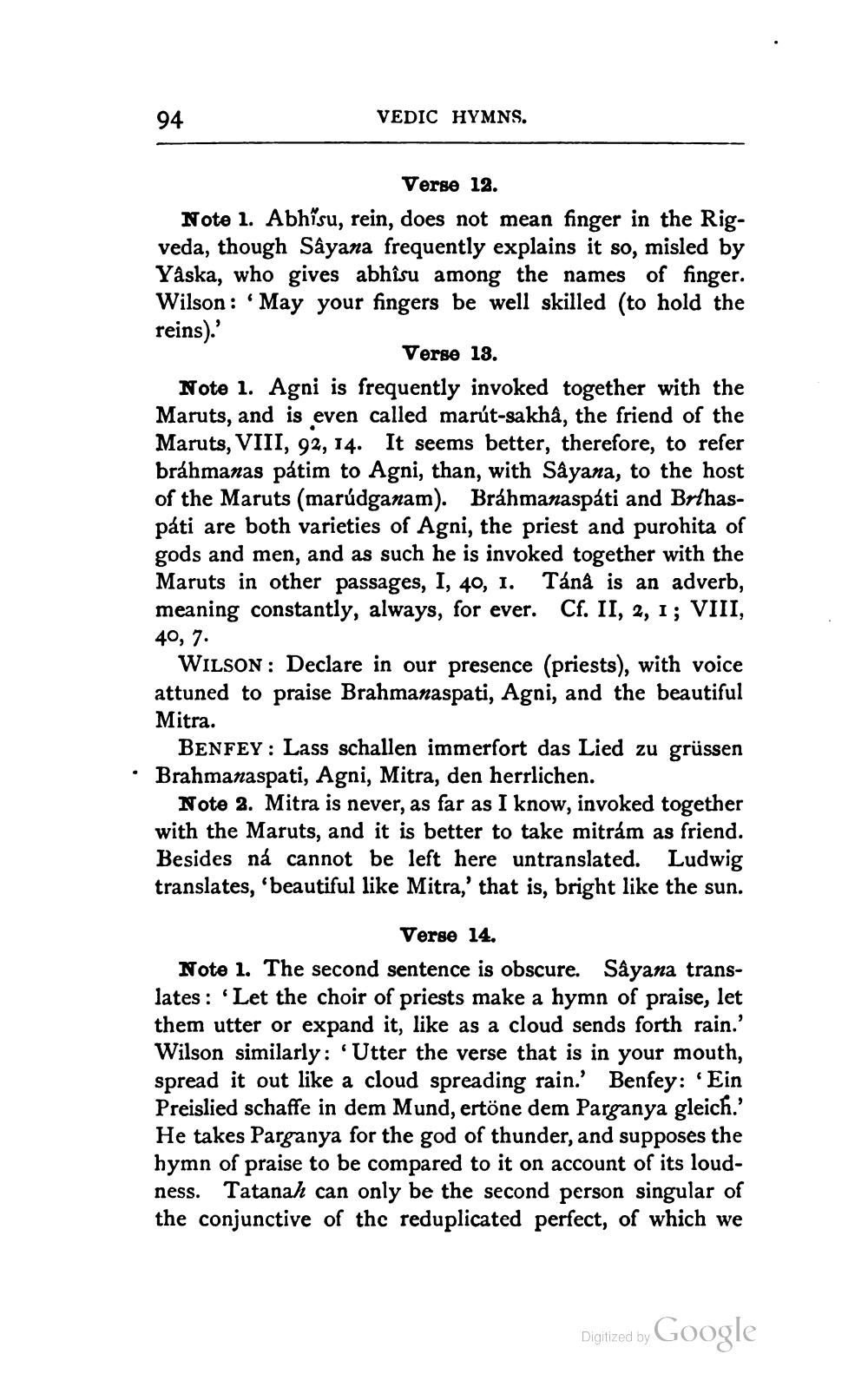________________
94
VEDIC HYMNS.
Verse 12. Note 1. Abhísu, rein, does not mean finger in the Rigveda, though Sâyana frequently explains it so, misled by Yaska, who gives abhîsu among the names of finger. Wilson: 'May your fingers be well skilled (to hold the reins).'
Verse 13. Note 1. Agni is frequently invoked together with the Maruts, and is even called marút-sakha, the friend of the Maruts, VIII, 92, 14. It seems better, therefore, to refer brahmanas pátim to Agni, than, with Sayana, to the host of the Maruts (marúdganam). Bráhmanaspáti and Brlhaspáti are both varieties of Agni, the priest and purohita of gods and men, and as such he is invoked together with the Maruts in other passages, I, 40, 1. Tánå is an adverb, meaning constantly, always, for ever. Cf. II, 2, 1; VIII, 40, 7.
WILSON: Declare in our presence (priests), with voice attuned to praise Brahmanaspati, Agni, and the beautiful Mitra.
BENFEY: Lass schallen immerfort das Lied zu grüssen Brahmanaspati, Agni, Mitra, den herrlichen.
Note 2. Mitra is never, as far as I know, invoked together with the Maruts, and it is better to take mitram as friend. Besides ná cannot be left here untranslated. Ludwig translates, 'beautiful like Mitra,' that is, bright like the sun.
Verse 14. Note 1. The second sentence is obscure. Sâyana translates: 'Let the choir of priests make a hymn of praise, let them utter or expand it, like as a cloud sends forth rain.' Wilson similarly: 'Utter the verse that is in your mouth, spread it out like a cloud spreading rain.' Benfey: Ein Preislied schaffe in dem Mund, ertöne dem Parganya gleich.' He takes Parganya for the god of thunder, and supposes the hymn of praise to be compared to it on account of its loudness. Tatanah can only be the second person singular of the conjunctive of thc reduplicated perfect, of which we
Digitized by
Digitized by Google




